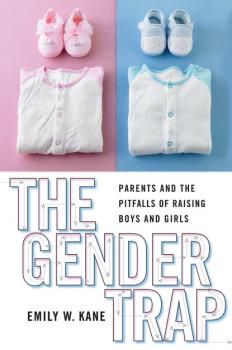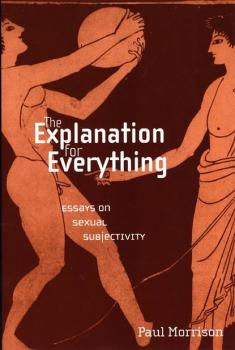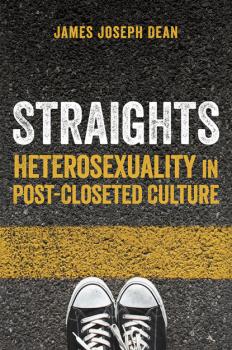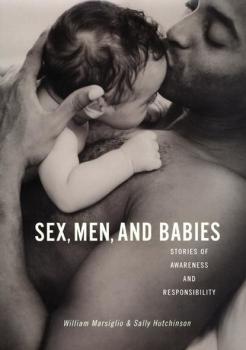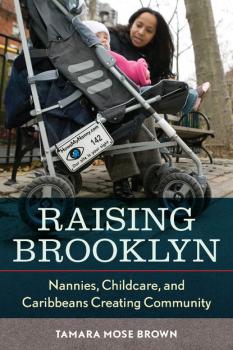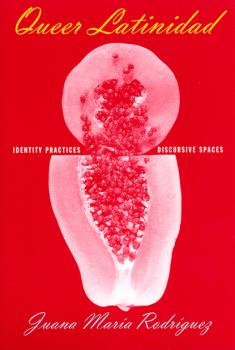ТОП просматриваемых книг сайта:
Управление, подбор персонала
Различные книги в жанре Управление, подбор персонала, доступные для чтения и скачиванияАннотация
Winner of the 2014 Diamond Anniversary Book Award Finalist for the 2014 National Communications Association Critical and Cultural Studies Division Book of the Year Award In 2000, the National Human Genome Research Institute announced the completion of a “draft” of the human genome, the sequence information of nearly all 3 billion base pairs of DNA. Since then, interest in the hereditary basis of disease has increased considerably. In The Material Gene, Kelly E. Happe considers the broad implications of this development by treating “heredity” as both a scientific and political concept. Beginning with the argument that eugenics was an ideological project that recast the problems of industrialization as pathologies of gender, race, and class, the book traces the legacy of this ideology in contemporary practices of genomics. Delving into the discrete and often obscure epistemologies and discursive practices of genomic scientists, Happe maps the ways in which the hereditarian body, one that is also normatively gendered and racialized, is the new site whereby economic injustice, environmental pollution, racism, and sexism are implicitly reinterpreted as pathologies of genes and by extension, the bodies they inhabit. Comparing genomic approaches to medicine and public health with discourses of epidemiology, social movements, and humanistic theories of the body and society, The Material Gene reworks our common assumption of what might count as effective, just, and socially transformative notions of health and disease.
Информация о книге
Автор произведения Kelly E. Happe
Жанр Управление, подбор персонала
Серия Biopolitics
Аннотация
From the selection of toys, clothes, and activities to styles of play and emotional expression, the family is ground zero for where children learn about gender. Despite recent awareness that girls are not too fragile to play sports and that boys can benefit from learning to cook, we still find ourselves surrounded by limited gender expectations and persistent gender inequalities. Through the lively and engaging stories of parents from a wide range of backgrounds, The Gender Trap provides a detailed account of how today’s parents understand, enforce, and resist the gendering of their children. Emily Kane shows how most parents make efforts to loosen gendered constraints for their children, while also engaging in a variety of behaviors that reproduce traditionally gendered childhoods, ultimately arguing that conventional gender expectations are deeply entrenched and that there is great tension in attempting to undo them while letting 'boys be boys' and 'girls be girls.' Instructor's Guide
Аннотация
"The claim 'I'm straight' is the psychosexual analogue of 'The check is in the mail': if you need to say it, your credit or creditability is already in doubt." So begins Paul Morrison's dazzling polemic, which takes as its point of departure Foucault's famous remark that sex is «the explanation for everything.» Combining psychoanalytic, literary, and queer theory, The Explanation for Everything seeks to account for the explanatory power attributed to homosexuality, and its relationship to compulsory heterosexuality. In the process, Morrison presents a scathing indictment of psychoanalysis and its impact on the study of sexuality. In bold but graceful leaps, Morrison applies his critique to a diversity of examples: subjectivity in Oscar Wilde, the cultural construction and reception of AIDS, the work of Robert Mapplethorpe, the practice of bodybuilding, and the contemporary reception of the sexual politics of fascism. Analytical, witty and astute, The Explanation for Everything will challenge and amuse, establishing Paul Morrison as one of our most exciting cultural critics.
Информация о книге
Автор произведения Paul Morrison
Жанр Управление, подбор персонала
Серия Sexual Cultures
Аннотация
“Look! There in the playground – with the stroller and diaper bag! It's Superdad! Yes, it's Superdad—the most involved fathers in American history. And with this careful, compassionate and also critical group portrait, Gayle Kaufman has finally told their story. If you think men aren't changing—or if you think they somehow get neutered if they are changing—you need to read this book.”—Michael Kimmel, author of Guyland In an age when fathers are spending more time with their children than at any other point in the past, men are also facing unprecedented levels of work-family conflict. How do fathers balance their two most important roles—that of father and that of worker? In Superdads, Gayle Kaufman captures the real voices of fathers themselves as they talk about their struggles with balancing work and family life. Through in-depth interviews with a diverse group of men, Kaufman introduces the concept of “superdads”, a group of fathers who stand out by making significant changes to their work lives in order to accommodate their families. They are nothing like their fathers, “old dads” who focus on their traditional role as breadwinner, or even some of their peers, so-called “new dads” who work around the increasing demands of their paternal roles without really bucking the system. In taking their family life in a completely new direction, these superdads challenge the way we think about long-held assumptions about men’s role in the family unit. Thought-provoking and heartfelt, Superdads provides an overview of an emerging trend in fatherhood and the policy solutions that may help support its growth, pointing the way toward a future society with a more feasible approach to the work-family divide.
Аннотация
Sincethe Stonewall Riots in 1969, the politics of sexual identity in America havedrastically transformed. It’s almost old news that recent generations ofAmericans have grown up in a culture more accepting of out lesbians and gaymen, seen the proliferation of LGBTQ media representation, and witnessed theattainment of a range of legal rights for same-sex couples. But the changeswrought by a so-called “post-closeted culture” have not just affected the queercommunity—heterosexuals are also in the midst of a sea change in how theirsexuality plays out in everyday life. In Straights,James Joseph Dean argues that heterosexuals can neither assume the invisibilityof gays and lesbians, nor count on the assumption that their ownheterosexuality will go unchallenged. The presumption that we are allheterosexual, or that there is such a thing as ‘compulsory heterosexuality,’ heclaims, has vanished. Based on 60 in-depth interviews witha diverse group of straight men and women, Straights explores how straight Americans make sense of their sexual and genderedselves in this new landscape, particularly with an understanding of how racedoes and does not play a role in these conceptions. Dean provides a historicalunderstanding of heterosexuality and how it was first established, then moveson to examine the changing nature of masculinity and femininity and, mostimportantly, the emergence of a new kind of heterosexuality—notably, for men,the metrosexual, and for women, the emergence of a more fluid sexuality. Thebook also documents the way heterosexuals interact and form relationships withtheir LGBTQ family members, friends, acquaintances, and coworkers. Althoughhomophobia persists among straight individuals, Dean shows that beinggay-friendly or against homophobic expressions is also increasingly commonamong straight Americans. A fascinating study, Straights provides an in-depth look at the changing nature ofsexual expression in America. Instructors: PowerPoint slides for each chapter are available by clicking on the files below. Introduction Chapter 1 Chapter 2 Chapter 3 Chapter 4 Chapter 5 Chapter 6
Аннотация
Over the past 15 years much pioneering work has been done on the social demography of young men's sexual activities, contraceptive use, and fertility experiences. But how do men develop and manage their identities in these areas? In Sex, Men, and Babies , William Marsiglio and Sally Hutchinson provide a compelling and insightful portrait of young men who are capable of anticipating, creating, and fathering human life. Based on in-depth interviews with a diverse sample of 70 single men aged 16-30, this is the most comprehensive, qualitative study of its kind. Through intimate stories and self-reflections, these men talk about sex, romance, relationships, birth control, pregnancies, miscarriages, abortions, visions of fathering, and other issues related to men's self-awareness, and the many ways they construct, explain, and change their identities as potential fathers. The interviews also provide valuable insights about how young men experience responsiblities associated with sex and the full range of procreative events. Accessibly written for a wide audience and raising a host of issues relevant to debates about unplanned pregnancy, childbearing among teens and young adults, and women's and children's well-being, Sex, Men, and Babies is the fullest account available today on how young men conceptualize themselves as procreative beings. Lessons from this study can inform interventions designed to encourage young men to be more aware of their abilities and responsiblities in making babies.
Аннотация
Sexual beliefs, behaviors and identities are interwoven throughout our lives, from childhood to old age. An edited collection of original empirical contributions united through its use of a distinctive, cutting-edge theoretical framework, Sex for Life critically examines sexuality across the entire lifespan. Rooted in diverse disciplines and employing a wide range of research methods, the chapters explore the sexual and social transitions that typically map to broad life stages, as well as key age-graded physiological transitions, such as puberty and menopause, while drawing on the latest developments in gender, sexuality, and life course studies. Sex for Life explores a wide variety of topics, including puberty, sexual initiation, coming out, sexual assault, marriage/life partnering, disability onset, immigration, divorce, menopause, and widowhood, always attending to the social locations – including gender, race, ethnicity, and social class – that shape, and are shaped by, sexuality. The empirical work collected in Sex for Life ultimately speaks to important public policy issues, such as sex education, aging societies, and the increasing politicization of scientific research. Accessibly written, the contributions capture the interplay between individual lives and the ever-changing social-historical context, facilitating new insight not only into people’s sexual lives, but also into ways of studying them, ultimately providing a fresh, new perspective on sexuality.
Информация о книге
Автор произведения Группа авторов
Жанр Управление, подбор персонала
Серия Intersections
Аннотация
Exploring young Latina youth's sexual agency, education, and expression While Latina girls have high teen birth rates and are at increasing risk for contracting sexually transmitted infections, their sexual lives are much more complex than the negative stereotypes of them as “helpless” or “risky” (or worse) suggest. In Respect Yourself, Protect Yourself, Lorena Garcia examines how Latina girls negotiate their emerging sexual identities and attempt to create positive sexual experiences for themselves. Through a focus on their sexual agency, Garcia demonstrates that Latina girls’ experiences with sexism, racism, homophobia and socioeconomic marginality inform how they engage and begin to rework their meanings and processes of gender and sexuality, emphasizing how Latina youth themselves understand their sexuality, particularly how they conceptualize and approach sexual safety and pleasure. At a time of controversy over the appropriate role of sex education in schools, Respect Yourself, Protect Yourself, provides a rare look and an important understanding of the sexual lives of a traditionally marginalized group.
Информация о книге
Автор произведения Lorena Garcia
Жанр Управление, подбор персонала
Серия Intersections
Аннотация
Stroll through any public park in Brooklyn on a weekday afternoon and you will see black women with white children at every turn. Many of these women are of Caribbean descent, and they have long been a crucial component of New York’s economy, providing childcare for white middle- and upper-middleclass families. Raising Brooklyn offers an in-depth look at the daily lives of these childcare providers, examining the important roles they play in the families whose children they help to raise. Tamara Mose Brown spent three years immersed in these Brooklyn communities: in public parks, public libraries, and living as a fellow resident among their employers, and her intimate tour of the public spaces of gentrified Brooklyn deepens our understanding of how these women use their collective lives to combat the isolation felt during the workday as a domestic worker.Though at first glance these childcare providers appear isolated and exploited—and this is the case for many—Mose Brown shows that their daily interactions in the social spaces they create allow their collective lives and cultural identities to flourish. Raising Brooklyn demonstrates how these daily interactions form a continuous expression of cultural preservation as a weapon against difficult working conditions, examining how this process unfolds through the use of cell phones, food sharing, and informal economic systems. Ultimately, Raising Brooklyn places the organization of domestic workers within the framework of a social justice movement, creating a dialogue between workers who don’t believe their exploitative work conditions will change and an organization whose members believe change can come about through public displays of solidarity.
Аннотация
According to the 2000 census, Latinos/as have become the largest ethnic minority group in the United States. Images of Latinos and Latinas in mainstream news and in popular culture suggest a Latin Explosion at center stage, yet the topic of queer identity in relation to Latino/a America remains under examined. Juana María Rodríguez attempts to rectify this dearth of scholarship in Queer Latinidad: Identity Practices, Discursive Spaces , by documenting the ways in which identities are transformed by encounters with language, the law, culture, and public policy. She identifies three key areas as the project’s case studies: activism, primarily HIV prevention; immigration law; and cyberspace. In each, Rodríguez theorizes the ways queer Latino/a identities are enabled or constrained, melding several theoretical and methodological approaches to argue that these sites are complex and dynamic social fields.As she moves the reader from one disciplinary location to the other, Rodríguez reveals the seams of her own academic engagement with queer latinidad. This deftly crafted work represents a dynamic and innovative approach to the study of identity formation and representation, making a vital contribution to a new reformulation of gender and sexuality studies.
Информация о книге
Автор произведения Juana María Rodríguez
Жанр Управление, подбор персонала
Серия Sexual Cultures


